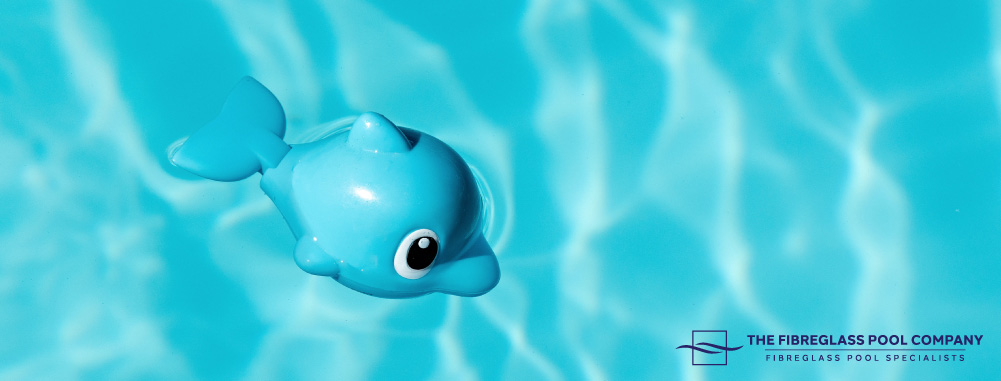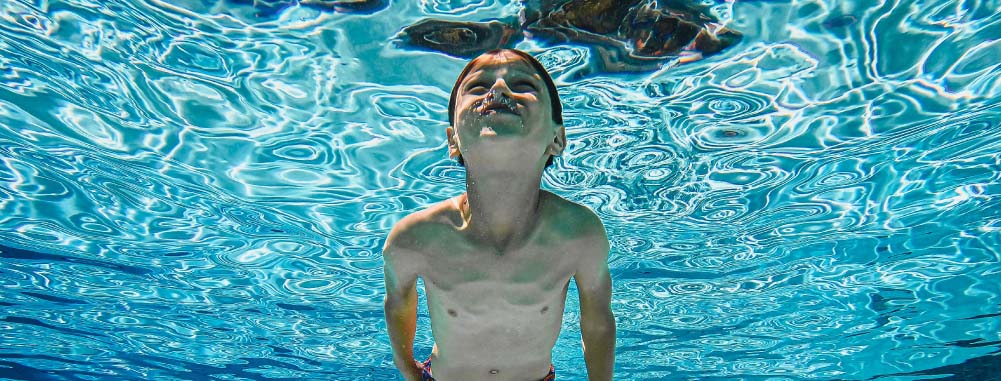A swimming pool needs to be cleaned on a regular basis if you want to keep using it.When it comes to your pool, if you don't clean it, then you really shouldn't swim in it. An essential aspect of maintaining your swimming pool is keeping it clean. And keeping leaf litter out is just one aspect of cleaning your pool. There are pathogens as well as parasites that can render your pool unsafe for swimming. But how do you keep these out? If you want to keep your pool safe for swimming in, you're going to need to use at least one kind of pool sanitiser.

Pool sanitiser: What is it?
A pool sanitiser is responsible for cleaning as well as sanitizing the water in your fibreglass pool. This way, you ensure that your pool is safe for people to swim in. Pool sanitisers get rid of harmful pathogens that could potentially make swimmers ill. Pool sanitisers can also help keep algae away from the pool.
The most popular kind of pool sanitiser and one you should already know about is chlorine. But there are other sanitation methods you could choose as well, in order to keep your fibreglass pool water clean.
So what are the pool sanitisation options available to you?
1. Pool chlorine
Another name for pool chlorine is hypochlorous acid. It’s responsible for inactivating as well as killing pathogens such as E.Coli from the pool water. It can also chemically destroy materials from the environment as well as swimmers, in order to make the pool water safe to swim in. Chlorine can also help keep algae out of your fibreglass pool. See if chlorine damages your pool here!
Pool chlorine can come in several forms. These include:
- Tablets
- Gas
- Powder
- Liquid
You can also have a saltwater chlorinator installed in your pool. These turn salt into chlorine with the help of a specialised generator. Fibreglass pools pair perfectly with saltwater chlorinators. To use your saltwater chlorinator, just add the required amount of salt to the pool, and the generator will do the rest of the work.

2. Pool bromine
Bromine belongs to the same chemical family as chlorine. However, it is more expensive. Compared to pool chlorine, pool bromine is just slightly more expensive. But over time, you would be spending more on sanitising your pool, if you use pool bromine.
Stay on top of your pool maintenance with this guide to the three main pool filters!
The key difference between pool bromine and chlorine is that the former doesn’t smell as strong as the latter. Pool bromine also irritates the eyes less. Note that chlorine is better at oxidising than bromine. What this means is that chlorine is better at changing the chemical structure of any contaminants that enter your pool water.
Bromine is used more commonly to sanitise spas as well as hot tubs. This is as pool bromine tends to be more stable in warm waters than chlorine. But it can also be used for your fibreglass pool as well.
In its original state, bromine is a liquid. However, pool bromine is available in the form of tablets or granules. Note that if you’re looking for other pool sanitisation options due to an allergy to chlorine, then avoid bromine. This is as pool bromine contains chlorine as well.
3. UV pool system
If you’re looking for a nearly chemical-free way to clean your fibreglass pool, then consider a UV pool sanitation system. The UV light that is emitted acts as a germicidal. This then eliminates harmful microorganisms within the pool water, when the water goes through the pool filtration system.
What this means is that at no point will you be directly exposed to the UV light. A UV pool sanitation system can be effective at getting rid of pathogens. However, it isn’t entirely free of chemicals.
The UV light sanitises the water only as it passes through the filtration system. This means that you’ll need to add pool chemicals to your fibreglass pool both before and after the pool water is sanitised by the UV pool system.
Check out our comparison guide to robotic pool cleaners and pressurised pool cleaners!

4. Ozone pool system
Pool ozone is essentially a gas that is generated in the location, with the help of an ozone generator. These ozone generators are responsible for splitting as well as reassembling oxygen molecules in order to form ozone using different ways. This can be done in one of two ways:
Corona discharge
Ultraviolet light
In the corona discharge system, you’ll get a higher concentration of ozone. However, they can also be more expensive to buy as well as install. When it comes to the long run however they tend to be more cost-effective. This is because they cost less per gram of the ozone that is produced when compared to ultraviolet ozone generators.
The generator will be connected to the circulation system of the pool. It sanitises the water as it’s filtered through. The ozone is responsible for killing bacteria, viruses and parasites that are in the pool. When the water is then returned to the fibreglass pool, the amount of ozone in it is very low and safe for use.
As the ozone concentration is low, you’ll need another pool disinfectant, usually chlorine, to ensure that your fibreglass pool is completely sanitised.
5. Pool ionizer
A pool ionizer is responsible for releasing heavy metal ions, for example, silver and copper. These are released into the pool water so that algae and bacteria can be killed. This is a process that is slow acting, and it’s not good enough to work as a standalone sanitiser.
When you use pool ionizers, you’ll also need chemical sanitisers, like chlorine, in order to regularly shock your pool. You should also note that if you don’t maintain your pool water properly and manage its water chemistry, then this method can cause staining.
Conclusion
There isn’t one best way to sanitise your pool. Every pool and every owner are different. Usually, pool chlorine is used as the primary way to sanitise a pool. This guide can help you learn about the different kinds of pool sanitisation options available to you.

